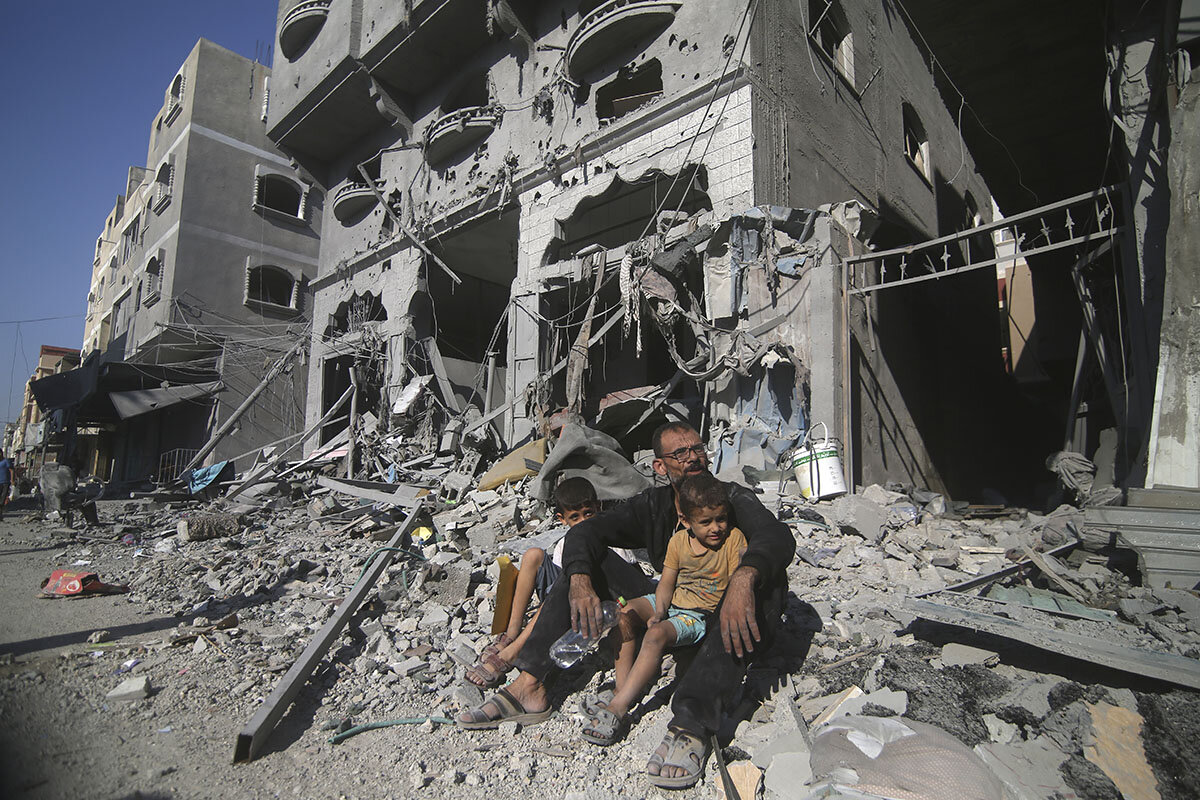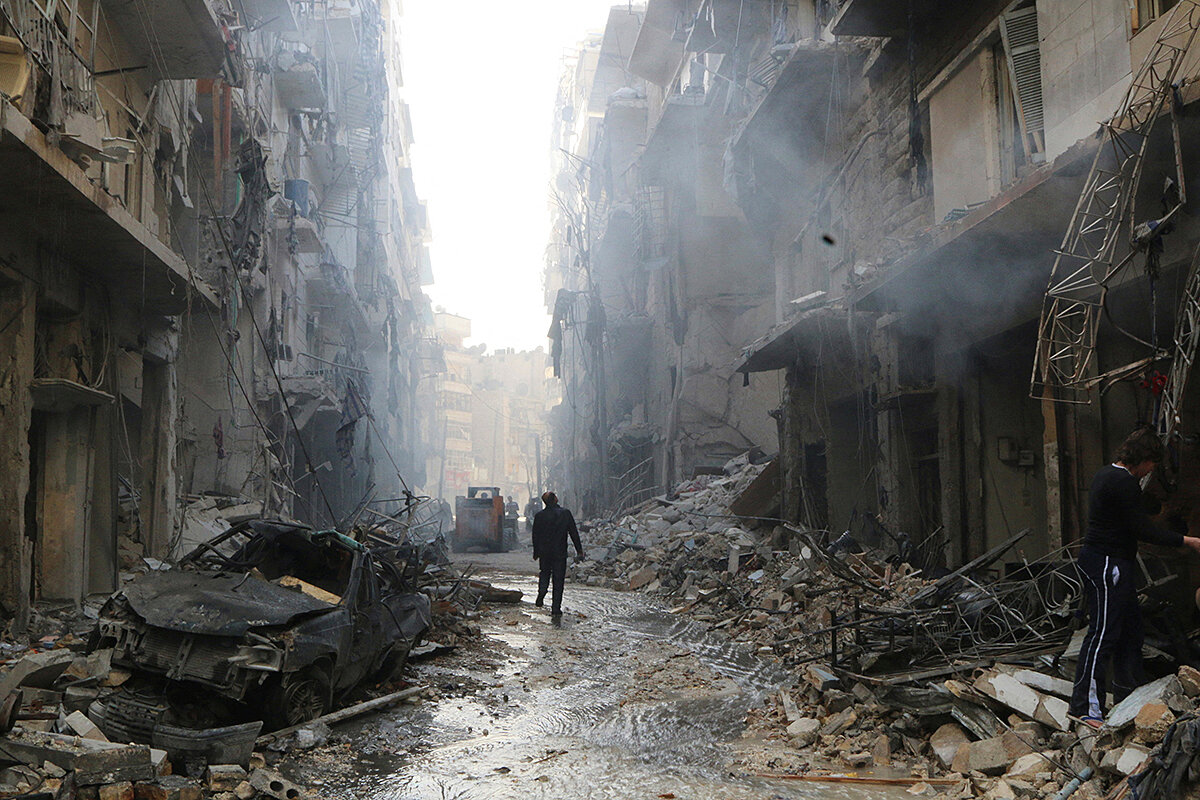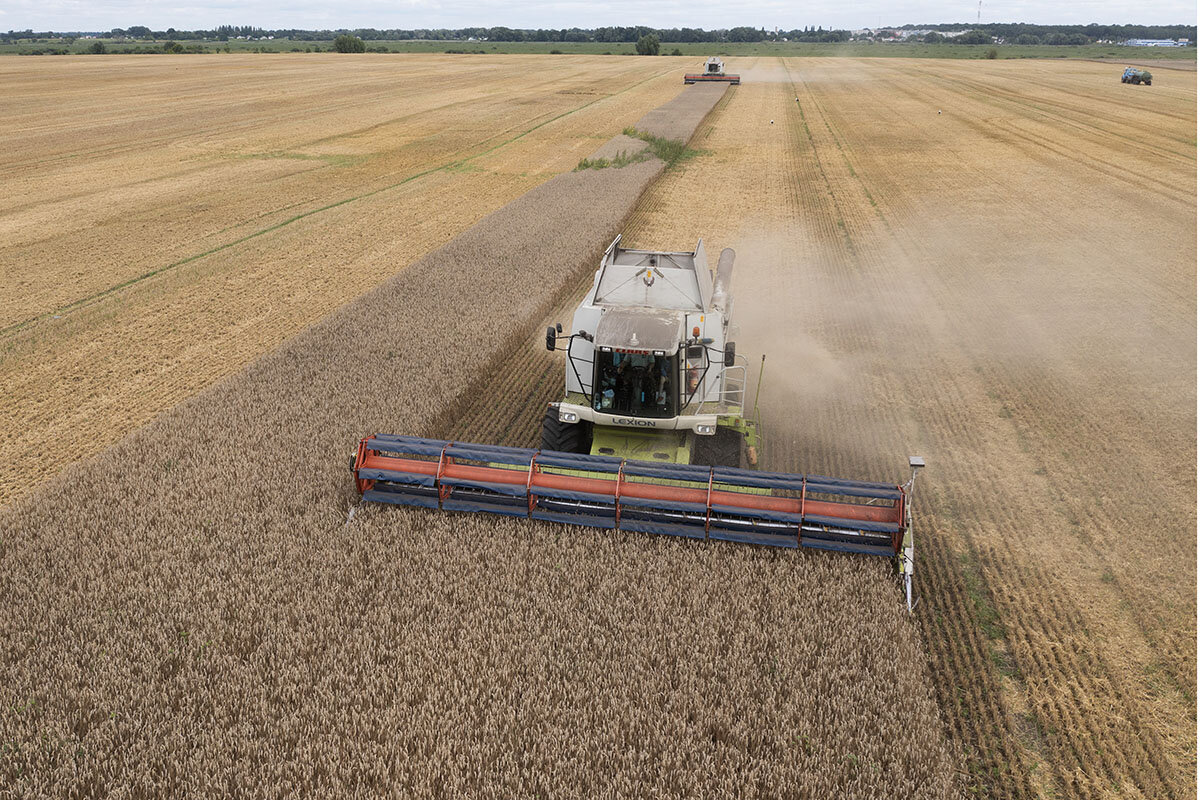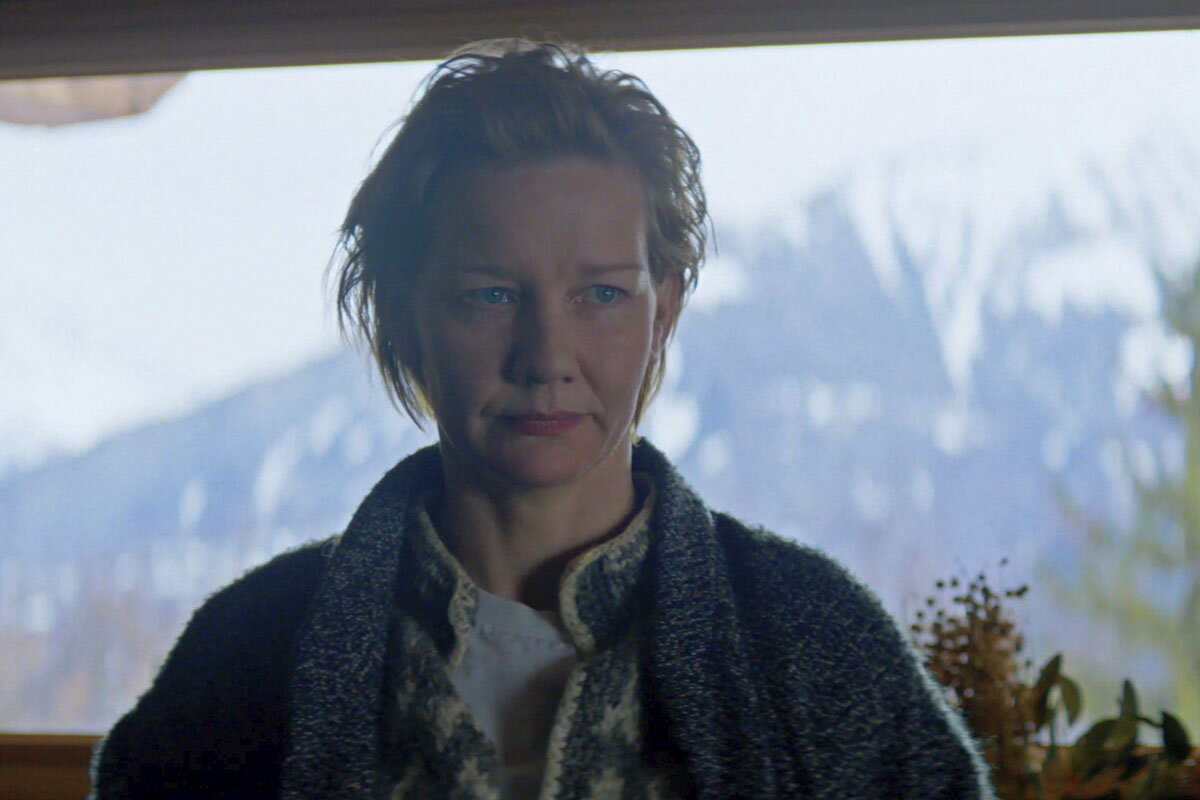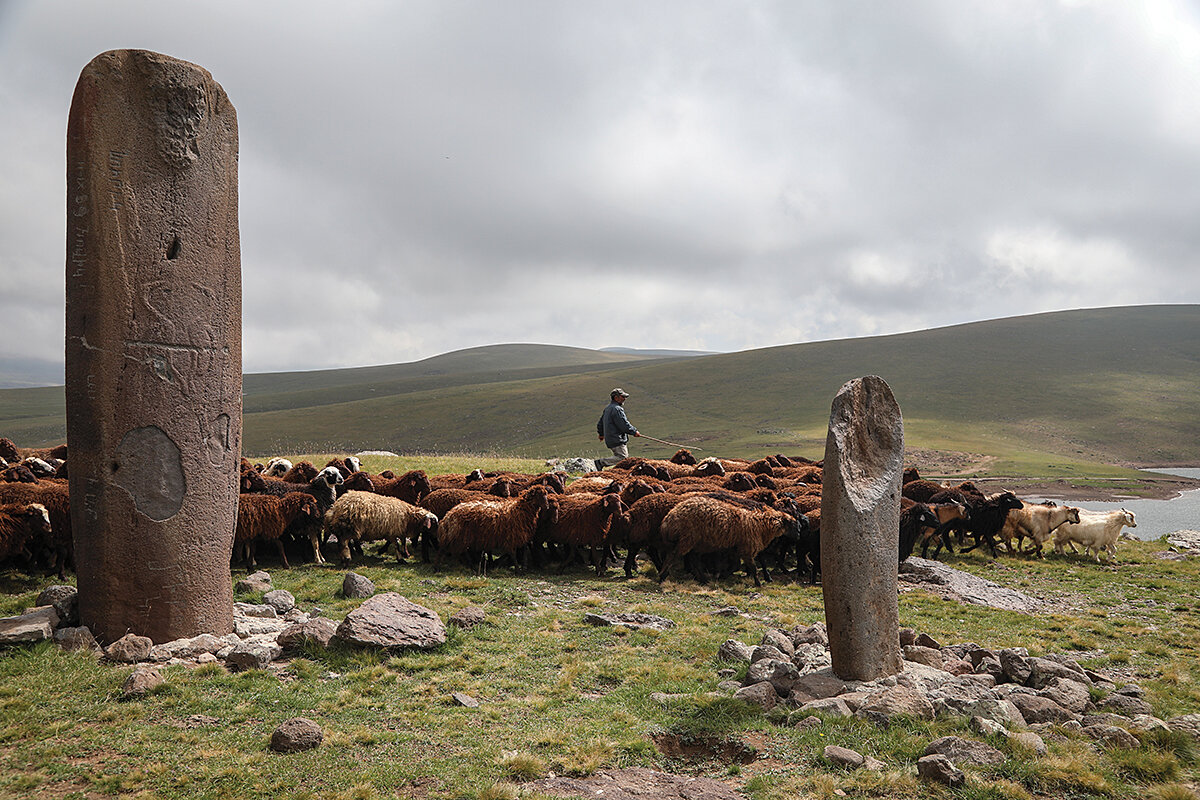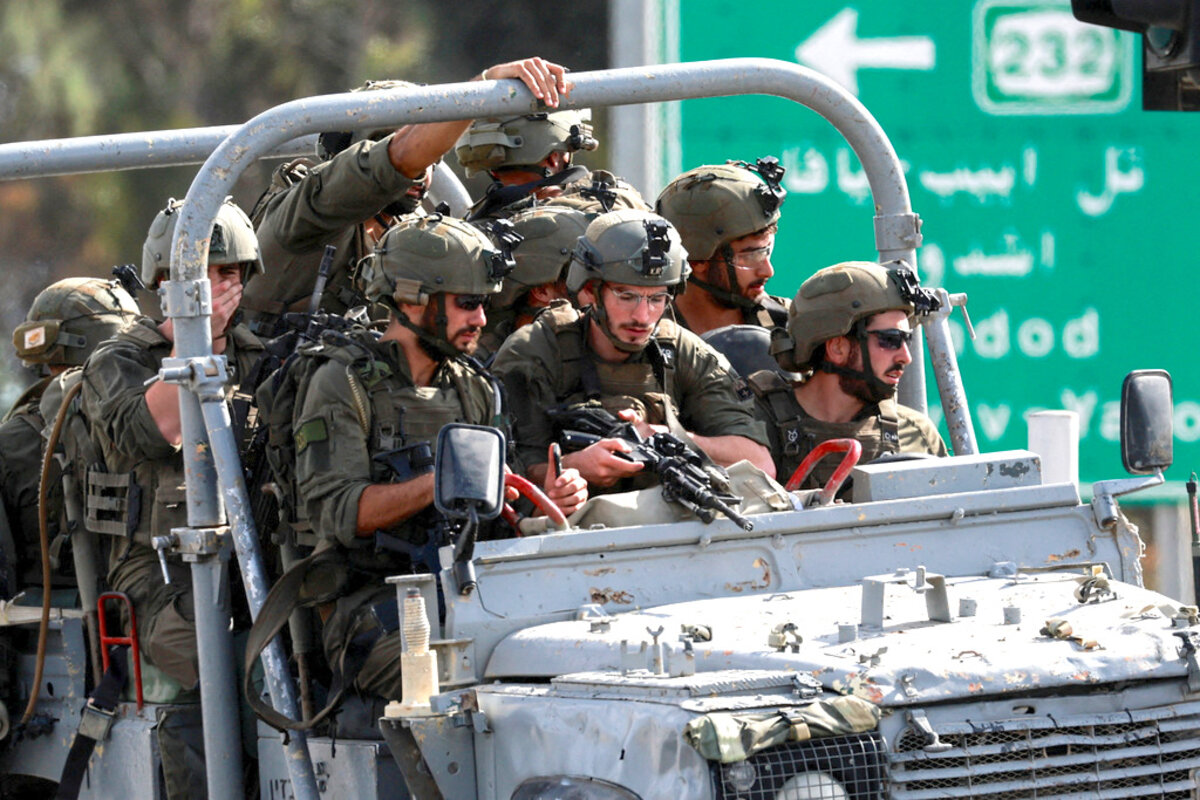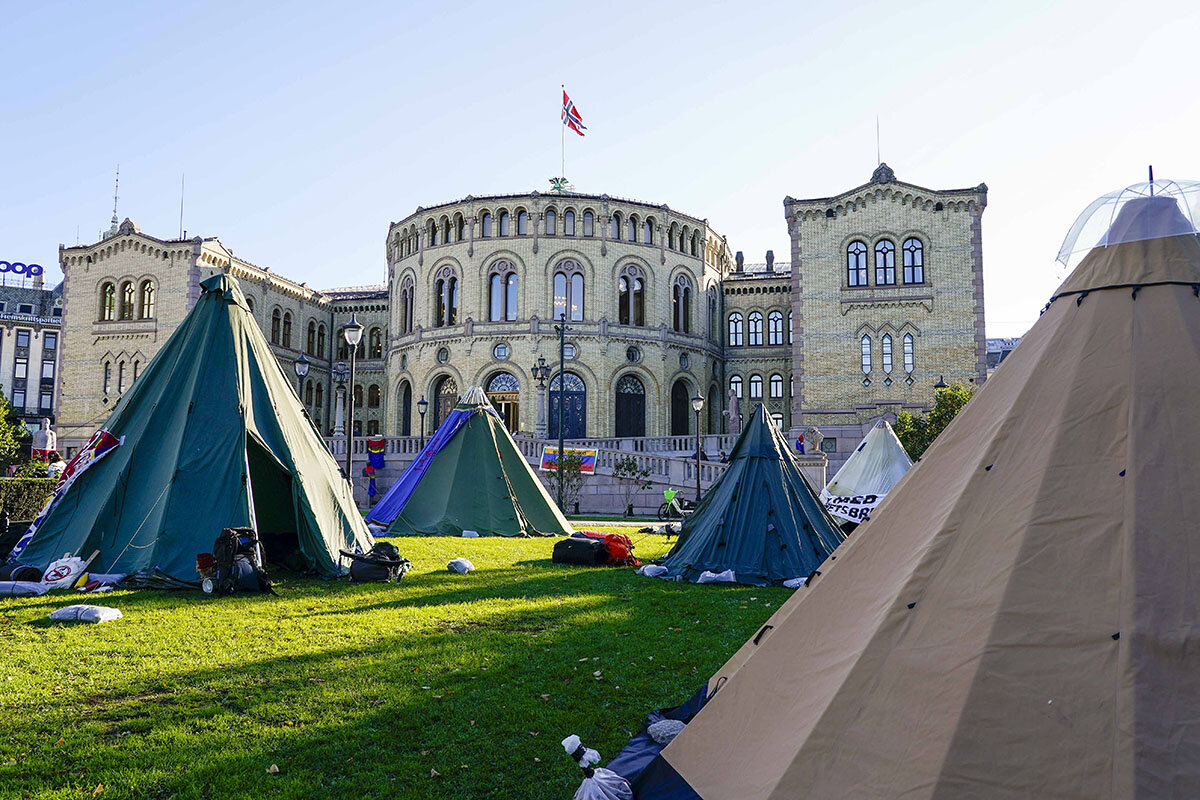The challenges surrounding the U.S. House speakership stem in part from personalities, polarization, and a GOP identity crisis, but also from decades of broader institutional neglect in Congress.
Monitor Daily Podcast
- Follow us:
- Apple Podcasts
- Spotify
- RSS Feed
- Download
 Taylor Luck and Dominique Soguel
Taylor Luck and Dominique Soguel
For most Syrians, justice is not some abstract concept, legal term, ideal – or even a court verdict. It is daily life.
Justice for a 12-year-old conflict that has killed more than 350,000, has displaced over 10 million, and has yet to be resolved looks different to different people. Justice could provide an answer for Um Amjad, who cannot gain custody of her children without her missing husband’s death certificate; a chance for Thawra Kerdia’s children to grieve their father; and paths for Syrians around the world to reclaim lost farms and homes.
For their article in today’s issue, Dominique Soguel and Taylor Luck spoke with Syrians in Europe and the Middle East, who said that justice – if not closure – is something closer to certainty.
European courts are no substitute for the accountability Syrians demand of President Bashar al-Assad’s regime, which continues to persecute and disappear citizens. But some European courts are embracing the principle of universal jurisdiction, and cases there help. They help expose the truth.
These cases are not a United Nations tribunal or a truth and reconciliation process. But they are what Syrians hope will prove to be cracks in the dam before the flood of truth comes forward.
Truth has been Syrians’ lone ally. The one thing Syrians have in an age of smartphones and social media is evidence. Lots of it. The Syrians we interviewed shared not only photos of missing loved ones but also graphic videos of violence against protesters and the killing of civilians, neighbors, and in-laws.
Syrians say truth and justice are the building blocks for a better future. It is this future that gives Syrians courage to testify – to speak on behalf of those who have been silenced and who are not yet born.





